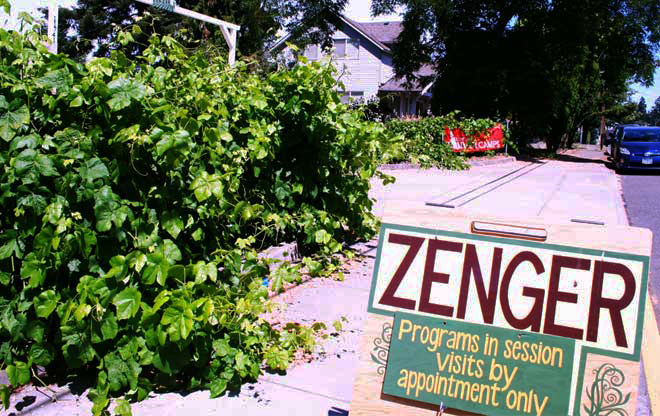
By Appointment Only
While events and classes are open to the public, visits are limited to appointment only. Most of the attendees of summer education courses are school-age children, so they aim to keep the property as secure as possible when school is in session.
Image: Rebecca Wahlstrom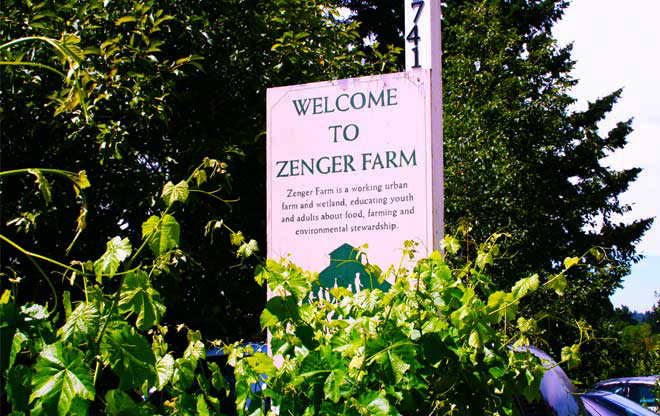
Farm with a Mission
The farm is one of the last vestiges of rural life in a rapidly urbanizing city. Zenger has worked to make sure they are a vital part of this community by providing nationally-recognized programs like Zenger Farm Shares and Healthy Rewards in an area overrun by fast food. In 1999, the newly formed non-profit group Friends of Zenger Farm formalized the farm's mission: We are a working urban farm that models, promotes and educates about sustainable food systems, environmental stewardship, community development and access to good food for all.
Image: Rebecca Wahlstrom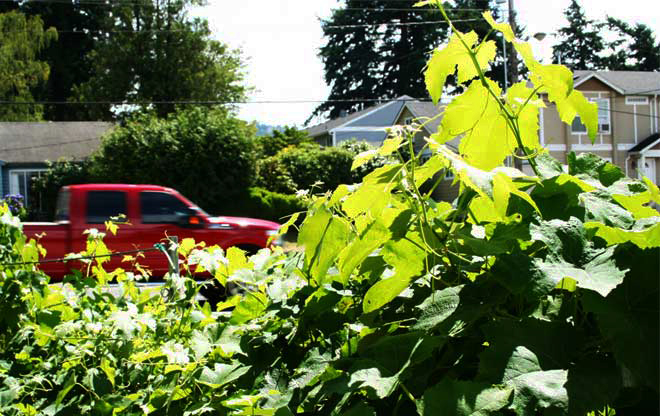
Traffic out, People in
The green buffer makes it easy to ignore the roar of traffic, but the farm does not ignore their neighbors in need. Improved food access is a big part of the mission at the farm. In the underserved areas adjacent to the farm, access to healthy food -- and information on how to prepare it properly -- is vital to improving community health.
Image: Rebecca Wahlstrom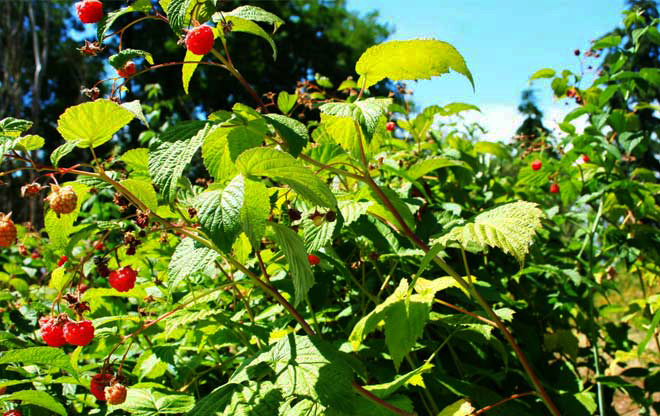
An Edible Fence
Berries along the roadside in front of Zenger Farm provide a sweet and free treat for passersby. Another way the farm is helping families in need: The Community Supported Agriculture (CSA) program at the farm was the first in Oregon to accept SNAP (Supplemental Nutrition Assistance Program) credits for purchasing CSA shares.
Image: Rebecca Wahlstrom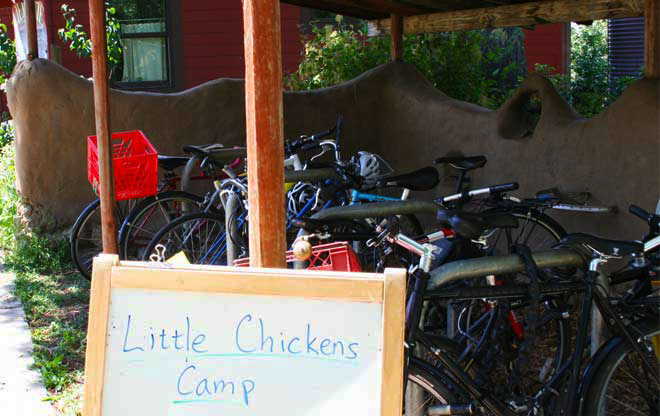
Bike Shelter
Humans power the farm, and the farm values human-powered transportation options. A unique parking shelter for bikes is built from mud and clay using natural building techniques.
Image: Rebecca Wahlstrom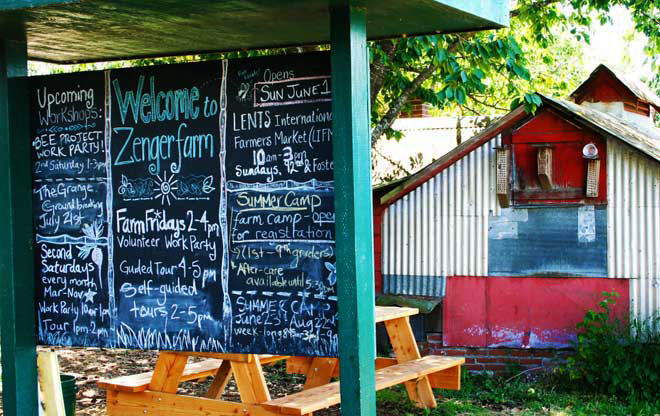
An Abundance of Events
This farm is in full swing during the summer! Events, camps, and classes keep the calendar full and the staff busy. As many as 8,000 people visit the farm throughout the year to learn about ways to include healthy food in their lives.
Image: Rebecca Wahlstrom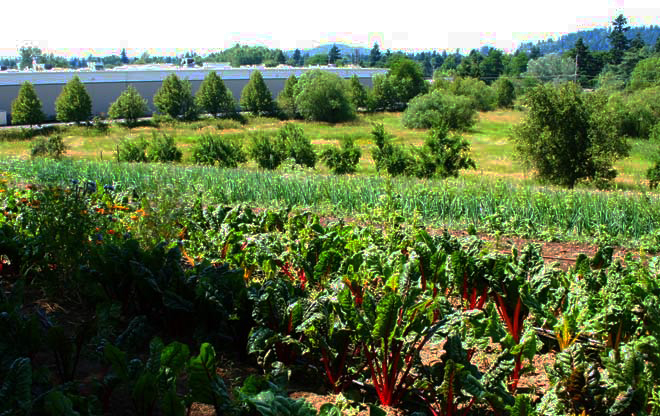
Wetlands at Zenger Farm
The wetlands at Zenger Farm play an important role in the flood-prone Johnson Creek Watershed, as both a sponge for stormwater and freshwater habitat for native flora and fauna. Encompassing both the wetland and farm areas, Zenger Farm creates unique opportunities to educate visitors about the importance of sustainable farming practices and how these practices impact the wetlands.
Image: Rebecca Wahlstrom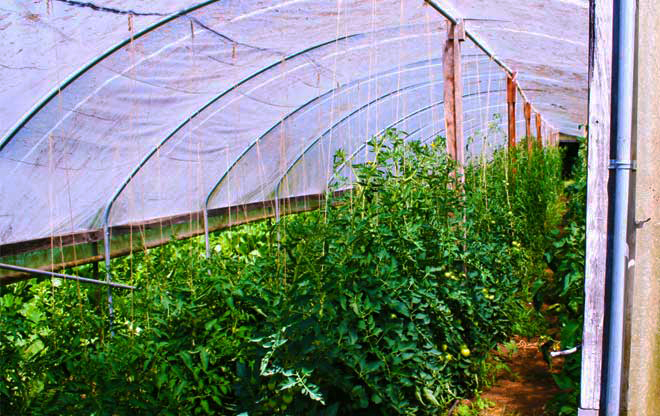
Greenhouses
The on-site greenhouses provide vital shelter to new starts and fragile plants, and extend the growing season.
Image: Rebecca Wahlstrom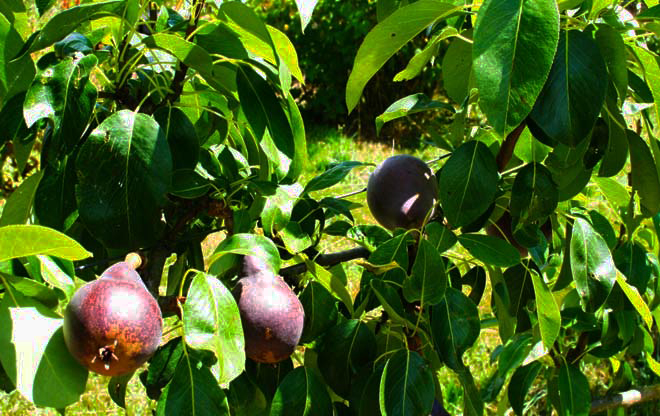
Food Pear-ing
Zenger Farm not only shows how people can grow things in a large agricultural plots, but also how to integrate food elements into more traditional residential and urban garden settings. Beautiful pear espaliers line the side of the parking lot, providing a good example of doing a lot in a small amount of space.
Image: Rebecca Wahlstrom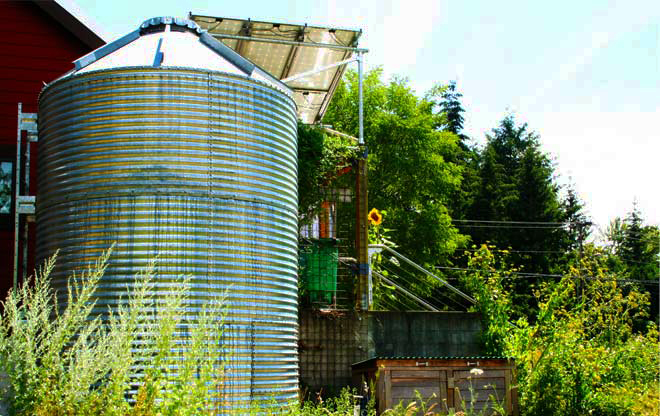
Net Zero Historic Building
Water collection and solar panels are part of the educational scene at the renovated farmhouse, which is a "net zero energy" building whose energy needs are supplied by 36 photovoltaic solar panels arranged on top of the porch. Rain water falling on the recycled metal roof is collected in two 4,800-gallon steel cisterns, then filtered and re-used as potable water in the house. Plans are in place to create a new grange in another part of the property that will provide space for the community to connect and have access to healthy food.
Image: Rebecca Wahlstrom